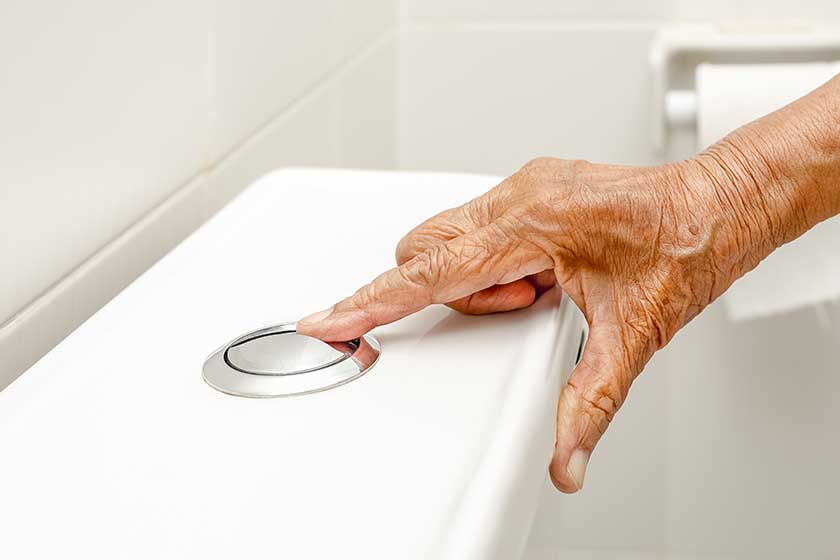Urinary incontinence is a common yet often embarrassing health condition for many older women and men. More than 50 percent of older individuals, mostly women, struggle with urinary incontinence in the United States.
The severity can range from mild leakage of urine upon sneezing or coughing to chronic wetting.
Although urinary incontinence occurs more often in older individuals, this condition is not a normal sign of healthy aging. If this condition affects your quality of life, do not hesitate to reach out to your practitioner. For many, a simple change in diet and lifestyle or medical care can treat the symptoms of urinary incontinence.
If your loved ones are suffering from symptoms of urinary incontinence, as a caregiver, you may wonder what may have caused these symptoms to show up in the first place. In this guide, we share four common causes of incontinence here.
Diet and Medication
Certain types of medications, drinks, and food may exacerbate bladder control issues. For instance, alcohol and caffeine are known to cause the body to produce more urine. For people with existing bladder control problems, such beverages can cause them to have more accidental leakage of urine.
Nervous System Disorders
Our nervous system sends signals to our muscles when to expand and contract, and is also responsible for letting your body know when your bladder is full. For individuals with damaged systems, such functions may not be working properly. This means that they may not know when they have to head to the restroom to urinate until it is too late. Furthermore, their nerves may send signals at wrong timings and cause unintentional leakage of urine. Health conditions such as multiple sclerosis, diabetes, and stroke can also affect the nervous system.
Urinary Tract Infections (UTIs)
UTIs, also known as bladder infections, are more common in females than males but can affect both genders. This condition occurs when viruses or bacteria infect any part of the urinary tract such as the bladder, kidneys, or urethra. It makes it difficult for an individual to control their bladder due to frequent and sudden urges to urinate, bladder spasms, and pain. UTIs occur more frequently in older adults compared to their younger counterparts and may even cause side effects such as disorientation or delirium.
Weakened Muscles
As we age, our muscles may become weaker as well. As a result, when the muscles around the bladder become affected, it can also lead to urinary incontinence. For women, the pelvic floor muscles can also become weakened during childbirth and pregnancy, causing urinary incontinence.
Senior Living Programs at Rittenhouse Village At Muhlenberg
As we age, our body and immune systems become weaker which can result in multiple health conditions such as urinary incontinence. As a caregiver, it is important to help your loved ones retain a good quality of life. However, it may be more difficult to care for your loved ones who are staying in isolation. If you are concerned for their well-being, Rittenhouse Village At Muhlenberg provides a multitude of senior living options your loved ones can live in and have their health-related needs be taken care of by our health professionals. Contact Rittenhouse Village At Muhlenberg to learn more about our living programs today!







